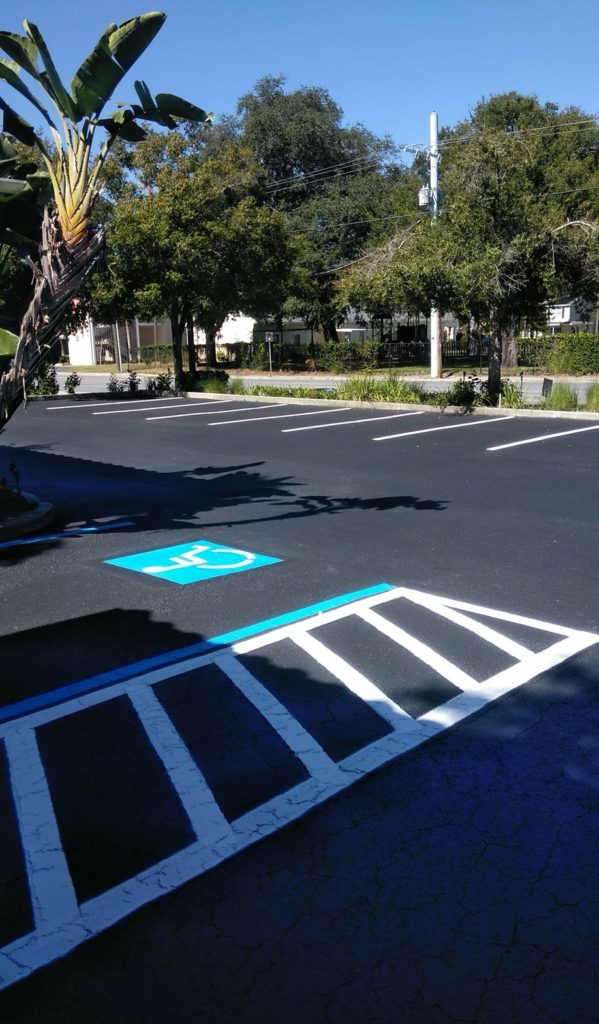Cold Mix Asphalt Vs. Hot Mix Asphalt: Which Is Right for You?

Structure Distinctions
Cold mix asphalt is generated by emulsifying the asphalt binder with water and an emulsifying representative prior to blending it with accumulation. The warm mix asphalt manufacturing process includes heating up the accumulation and asphalt binder individually before integrating them at the asphalt plant.
In addition, cool mix asphalt often tends to be much less thick and more flexible than warm mix asphalt. This adaptability makes it far better matched for locations with greater degrees of motion, such as driveways or roads with heavy website traffic. In contrast, hot mix asphalt is known for its high durability and resistance to rutting and breaking, making it a preferred choice for freeways and high-traffic roadways where longevity is important.
Setup Process Differences
The process of setting up cool mix and hot mix asphalt shows noteworthy variances in their requirements and treatments. In contrast, hot mix asphalt requires a much more elaborate installation procedure. Due to the home heating demands, hot mix asphalt installments are normally brought out by specialists with specialized equipment, guaranteeing a much more long-term and structurally sound outcome.
Durability and Longevity Aspects
When thinking about asphalt choices, sturdiness and durability are critical aspects to review for enduring pavement efficiency,. Warm mix asphalt (HMA) is recognized for its extraordinary toughness and long life. The heats throughout the mixing and laying process enable much better compaction, leading to a denser and more powerful sidewalk framework. This results in HMA being more resistant to rush hour loads, severe climate condition, and the impacts old compared to cool mix asphalt (CMA)
In regards to long life, HMA generally outperforms CMA as a result of its remarkable stamina and resistance residential properties. HMA sidewalks have a longer solution life, needing much less constant repairs and maintenance, which can translate to set you back financial savings in the future. Additionally, HMA pavements are extra quickly personalized to satisfy details task requirements, better enhancing their sturdiness.
Cost Factors To Consider
Taking into consideration the financial implications is an essential element when assessing the option in between warm mix asphalt (HMA) and cold mix asphalt image source (CMA) for pavement projects. While the initial expense of hot mix asphalt is commonly greater than that of chilly mix asphalt, HMA frequently gives an extra cost-efficient option in the lengthy run due to its superior durability and longevity.
Along with material expenses, it's important to think about the costs linked with installment and upkeep when contrasting HMA and CMA. HMA normally calls for specific devices and experienced labor for appropriate installation, which can impact overall job prices. Conversely, CMA is less complicated to collaborate with and can typically be used using simpler strategies, possibly lowering installation costs. Ultimately, the choice in between HMA and CMA ought to take into consideration not just the preliminary price yet likewise the long-lasting monetary implications to see here determine one of the most economical choice for the certain pavement job.
Environmental Impact Contrast
Comparison of the environmental effects in between warm mix asphalt (HMA) and cool mix asphalt (CMA) discloses unique distinctions in sustainability techniques. HMA manufacturing calls for heats, bring about increased power intake and greenhouse gas emissions. The procedure also releases unpredictable organic compounds (VOCs) and hazardous air pollutants (HAPs) right into the environment. In contrast, CMA is produced and used at lower temperature levels, minimizing energy usage and emissions substantially. The lower production temperatures of CMA lead to decreased gas usage and lower degrees of carbon dioxide exhausts, making it a much more ecologically pleasant option.
Moreover, the usage of CMA usually includes reusing existing asphalt pavement, promoting resource preservation and lowering the quantity of waste sent to landfills. This reusing aspect better improves special info the sustainability of CMA compared to HMA. On the whole, when considering the ecological influence, CMA becomes a more environmentally lasting choice as a result of its reduced energy requirements, lowered exhausts, and the potential for recycling existing products. By deciding for CMA over HMA, roadway building tasks can add favorably to environmental conservation efforts.
Conclusion
To conclude, the choice between cold mix asphalt (CMA) and hot mix asphalt (HMA) depends on different elements such as structure, installation procedure, toughness, long life, expense, and environmental effect. asphalt repair. While CMA uses a quick and cost-efficient remedy for small repair work, HMA makes sure remarkable longevity and longevity for rush hour areas. Consider these aspects thoroughly to figure out which kind of asphalt is the appropriate selection for your paving requires

Considering the economic ramifications is an important element when assessing the choice in between hot mix asphalt (HMA) and chilly mix asphalt (CMA) for sidewalk projects. While the first price of warm mix asphalt is commonly greater than that of chilly mix asphalt, HMA usually provides a more cost-effective solution in the lengthy run due to its premium sturdiness and durability. angle parking.Contrast of the ecological effects in between hot mix asphalt (HMA) and chilly mix asphalt (CMA) discloses distinct differences in sustainability methods.In verdict, the choice between cold mix asphalt (CMA) and warm mix asphalt (HMA) depends on different aspects such as structure, installation procedure, toughness, longevity, price, and ecological impact